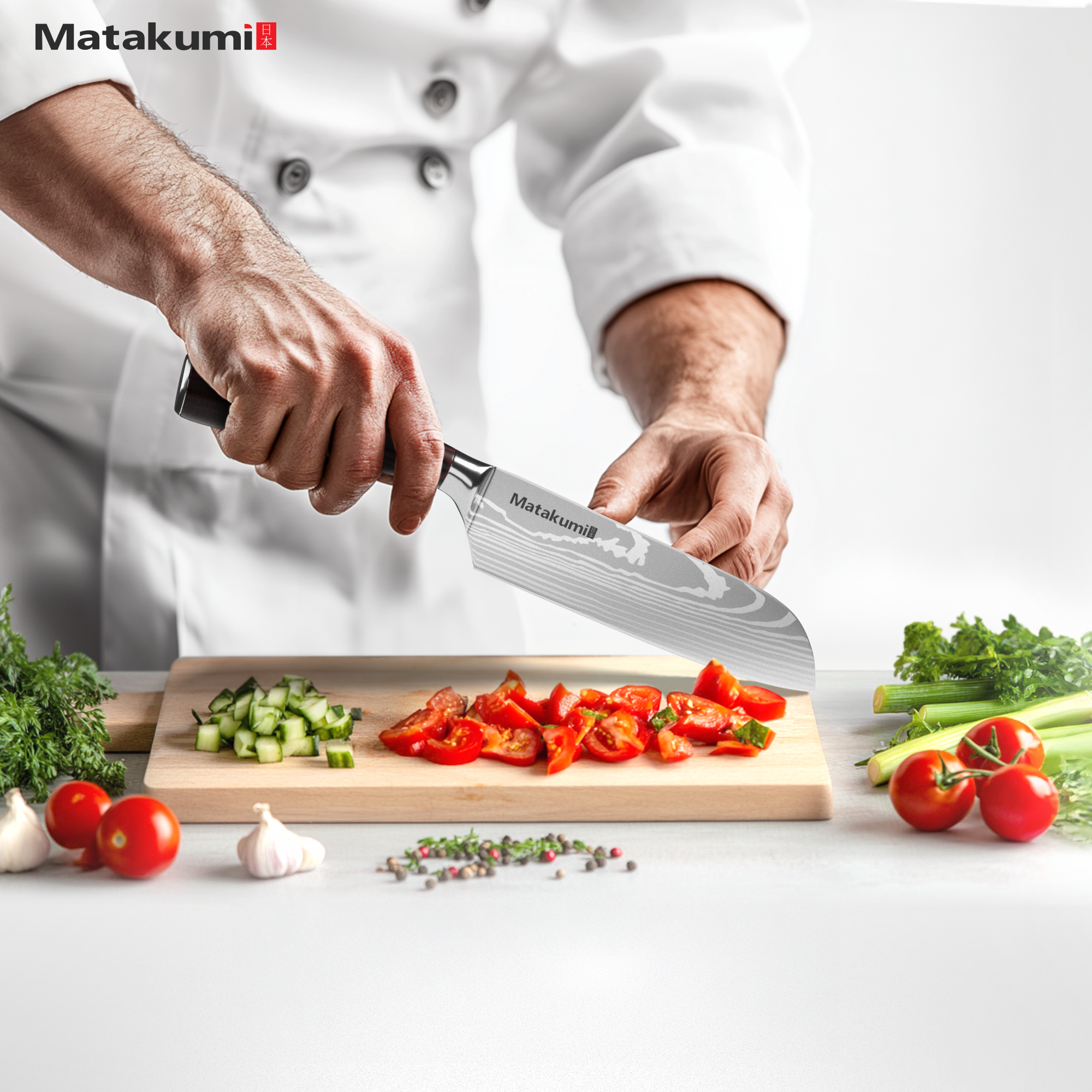What’s the Best Cutting Board for Your Knives?
When it comes to food preparation, having the right tools can make all the difference. One essential tool in any kitchen is a cutting board. But with so many options available, how do you know which is the best cutting board for your knives? Let's take a closer look at the pros and cons of wood, plastic, bamboo, and glass cutting boards.
Wood Cutting Boards
Wood cutting boards are a classic choice for many home cooks. They are durable, gentle on knife blades, and have natural antimicrobial properties. However, wood cutting boards require more maintenance than other materials. They need to be regularly oiled to prevent drying out and warping. Additionally, wood cutting boards can be more prone to harboring bacteria if not properly cleaned.
Plastic Cutting Boards
Plastic cutting boards are affordable, lightweight, and easy to clean. They can also be put in the dishwasher for added convenience. However, plastic cutting boards are more prone to knife scarring, which can create grooves where bacteria can hide. Over time, these grooves can make the cutting board less hygienic.
Bamboo Cutting Boards
Bamboo cutting boards are a sustainable and eco-friendly option. They are harder than wood cutting boards, which can help maintain sharp knife edges. Bamboo cutting boards are also less porous than wood, making them less likely to absorb liquids and odors. However, bamboo cutting boards can be more prone to cracking and splitting than other materials.
Glass Cutting Boards
Glass cutting boards are non-porous, making them resistant to stains and odors. They are also dishwasher safe and easy to clean. However, glass cutting boards are extremely hard, which can quickly dull knife blades. The hard surface can also be noisy and may cause knives to slip, posing a safety hazard.
Ultimately, the best cutting board for your knives will depend on your personal preferences and cooking habits. If you prioritize knife care and are willing to put in the extra maintenance, a wood cutting board may be the right choice for you. If convenience and easy cleaning are your top priorities, a plastic cutting board might be more suitable. Bamboo cutting boards offer a balance between durability and sustainability, while glass cutting boards are best for those who prioritize hygiene and easy maintenance.
Whichever material you choose, remember to regularly clean and sanitize your cutting board to ensure safe food preparation. By selecting the best cutting board for your knives, you can enhance your cooking experience and prolong the life of your kitchen tools.
When it comes to taking care of your knives, choosing the right cutting board is essential. Different materials offer various benefits and drawbacks that can affect the sharpness and longevity of your blades. Let's explore the best cutting board options for your kitchen knives: wood, plastic, bamboo, and glass.
Wood Cutting Boards
Wood cutting boards are a popular choice among chefs for their durability and knife-friendly surface. They are gentle on knife edges, reducing the likelihood of dulling. Wood also has natural antimicrobial properties, making it a hygienic option for food preparation. However, wood cutting boards require regular maintenance to prevent warping and cracking. It is essential to oil them frequently to maintain their quality.
Plastic Cutting Boards
Plastic cutting boards are affordable, lightweight, and dishwasher safe, making them a convenient option for many home cooks. However, plastic boards are prone to developing deep grooves from knife cuts, which can harbor bacteria if not cleaned thoroughly. Additionally, some plastic cutting boards may contain microplastics that can leach into food over time, posing potential health risks.
Bamboo Cutting Boards
Bamboo cutting boards are eco-friendly and sustainable alternatives to traditional wood boards. Bamboo is a fast-growing grass that regenerates quickly, making it a renewable resource. Bamboo boards are also gentle on knives and have natural antimicrobial properties. However, like wood boards, bamboo cutting boards require regular maintenance to prevent cracking and warping.
Glass Cutting Boards
Glass cutting boards are non-porous and easy to clean, making them a hygienic option for food preparation. They are also heat-resistant, allowing you to use them as trivets for hot pots and pans. However, glass cutting boards are extremely hard and can quickly dull knife blades. The hard surface can also cause knives to chip or break if used improperly.
When choosing the best cutting board for your knives, consider your priorities: knife-friendliness, maintenance requirements, eco-friendliness, and hygiene. Each material offers unique benefits and drawbacks that can impact the performance and longevity of your knives. By selecting the right cutting board for your needs, you can ensure that your knives stay sharp and efficient for years to come.





